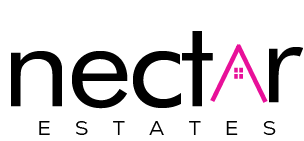Deciding whether to buy or rent a home is one of the biggest financial choices you’ll make. Each option has its advantages and disadvantages, depending on your financial situation, lifestyle, and long-term goals. Here’s a breakdown of the pros and cons to help you decide which is right for you.
Pros and Cons of Buying a Home
Pros:
- Building Equity – Each mortgage payment contributes to owning your home outright, making it a valuable long-term asset.
- Stability – Homeownership provides stability, especially if you plan to stay in one place for many years.
- Freedom to Customize – You can renovate, decorate, and modify your home as you like.
- Potential for Appreciation – Property values often increase over time, potentially providing financial gains if you sell.
- Fixed Monthly Payments – With a fixed-rate mortgage, your monthly payments remain consistent, unlike rent which may increase over time.
Cons:
- Upfront Costs – Buying requires a substantial deposit, legal fees, and other closing costs.
- Maintenance Responsibility – Homeowners must cover all repairs and upkeep, which can be expensive and time-consuming.
- Less Flexibility – Selling a home takes time, making relocation more challenging.
- Market Fluctuations – Property values can go down, potentially leading to financial loss if you sell at the wrong time.
- Additional Expenses – Costs such as property taxes, insurance, and maintenance add to the total cost of homeownership.
Pros and Cons of Renting a Home
Pros:
- Lower Upfront Costs – Renting usually requires a deposit and first month’s rent, which is more affordable than a home deposit.
- Flexibility – Renters can move more easily, making it ideal for those who relocate frequently.
- No Maintenance Costs – Landlords are typically responsible for repairs and maintenance, saving renters money and effort.
- No Market Risk – Renters don’t have to worry about property values decreasing.
- Access to Amenities – Many rental properties include amenities such as pools, gyms, and security services at no extra cost.
Cons:
- No Equity Building – Rent payments do not contribute to ownership or long-term financial investment.
- Rent Increases – Landlords can raise rent over time, making long-term housing costs unpredictable.
- Limited Control – Renters may face restrictions on decorating, pet ownership, and renovations.
- Lack of Stability – Lease agreements may not guarantee long-term security, as landlords can sell or change rental terms.
- No Tax Benefits – Homeowners can claim mortgage interest and property tax deductions, which renters cannot.
Choosing whether to buy or rent depends on your financial situation, lifestyle preferences, and future plans. If you value stability and long-term investment, buying may be the right choice. However, if flexibility and lower upfront costs are your priority, renting might be the better option. Consider your goals and consult a financial expert to make the best decision for your circumstances.

